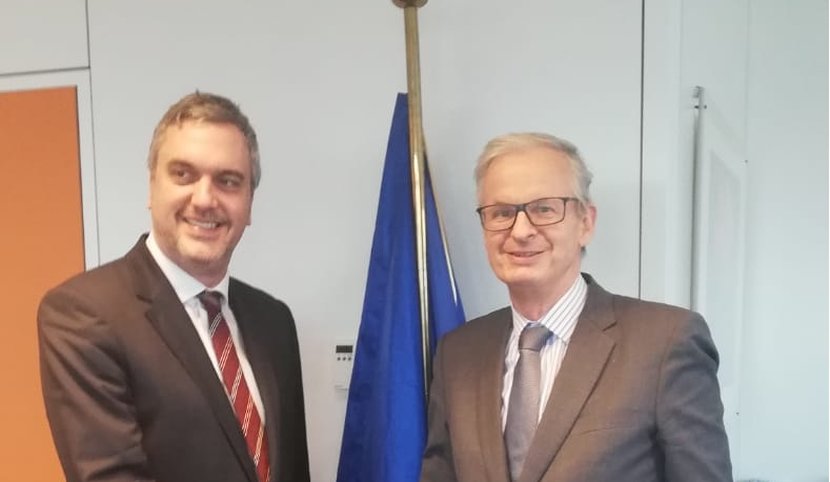
Čadež at the EU Commission: To make doing business easier and cheaper for businessmen in the Western Balkans
The Western Balkans 6 Chamber Investment Forum and the Directorate-General for European Neighborhood Policy and Enlargement Negotiations (DG NEAR) will prepare a series of concrete proposals and solutions useful for the business community in the following months leading to the Western Balkans Summit in Zagreb. The proposed solutions will make it easier and cheaper for companies to do business within the region, and facilitate easier entry into the common market while accelerating regional and economic integration with the European Union”.
This is, according to Marko Cadez, President of the Western Balkans 6 Chamber Investment Forum and President of the Chamber of Commerce and Industry of Serbia, the highlight of today’s two-hour meeting in Brussels with the Director General of DG NEAR Christian Danielsson and his team.
“We came to the European Commission concerning very precise topics, talked about specific issues and problems of businessmen in Western Balkans and came across very good reactions and a willingness to work together on this, “said Mr. Cadez.
Our conversation was looking for straightforward solutions, since the business community, Mr. Cadez said, does not think about methodologies or categories of clusters and chapters, it is only interested in how goods will be able to enter the EU more easily and borders crossed faster, how to reduce production and exports cost, will the procedures be simpler and whether our engineers will be able to go to other countries, install equipment and maintain it, etc..
“Before the upcoming Summit in Zagreb we would like to reach a series of proposals and solutions for the business community, when it comes to the process of integration of the markets of the six economies of the Western Balkans into one single regional market, but also define the relations of the region with the European Union“, Marko Cadez said. He noted that all proposals will be based on conrecete issues affecting the economy and companies individually – for example, what do our border crossings look like, what are the procedures, what is our common risk assessment, how is the sampling of agricultural products we export done, and how can we harmonize all of these procedures.
“Our ultimate goal is to reduce costs of our manufacturers in the future and to enable them to be as competitive as possible in all sectors of the business, whether it comes to the automotive industry, IT sector or agrofood sector, and to enable easier entry of our products to the common market, “Mr. Cadez concluded.



